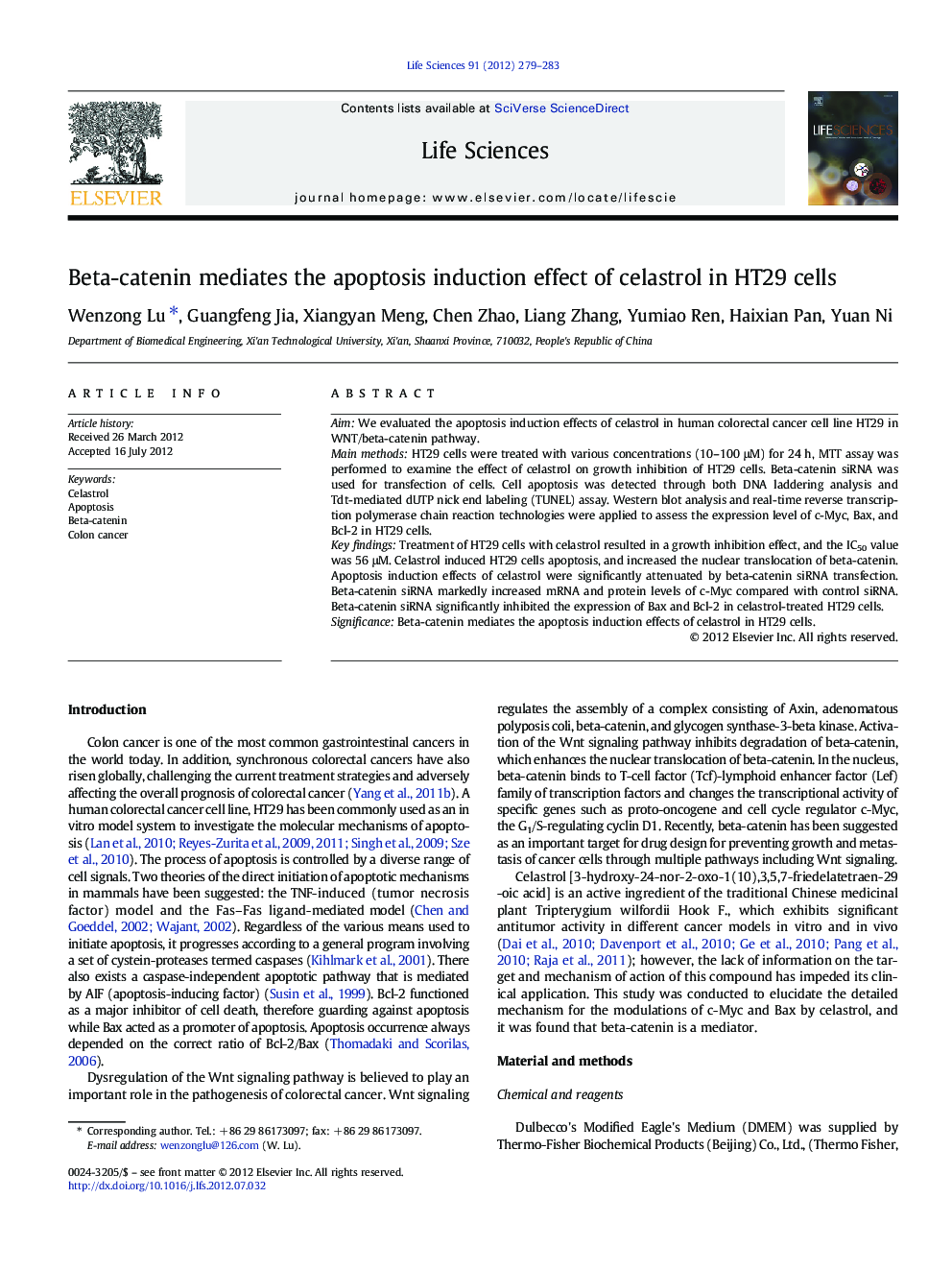| Article ID | Journal | Published Year | Pages | File Type |
|---|---|---|---|---|
| 5842752 | Life Sciences | 2012 | 5 Pages |
AimWe evaluated the apoptosis induction effects of celastrol in human colorectal cancer cell line HT29 in WNT/beta-catenin pathway.Main methodsHT29 cells were treated with various concentrations (10-100 μM) for 24 h, MTT assay was performed to examine the effect of celastrol on growth inhibition of HT29 cells. Beta-catenin siRNA was used for transfection of cells. Cell apoptosis was detected through both DNA laddering analysis and Tdt-mediated dUTP nick end labeling (TUNEL) assay. Western blot analysis and real-time reverse transcription polymerase chain reaction technologies were applied to assess the expression level of c-Myc, Bax, and Bcl-2 in HT29 cells.Key findingsTreatment of HT29 cells with celastrol resulted in a growth inhibition effect, and the IC50 value was 56 μM. Celastrol induced HT29 cells apoptosis, and increased the nuclear translocation of beta-catenin. Apoptosis induction effects of celastrol were significantly attenuated by beta-catenin siRNA transfection. Beta-catenin siRNA markedly increased mRNA and protein levels of c-Myc compared with control siRNA. Beta-catenin siRNA significantly inhibited the expression of Bax and Bcl-2 in celastrol-treated HT29 cells.SignificanceBeta-catenin mediates the apoptosis induction effects of celastrol in HT29 cells.
